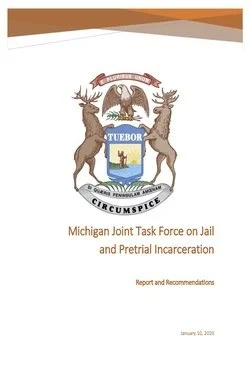By Christina Das and Jackie O’Neil
Across the country, thousands of elected officials wield considerable power over the function and outcomes of the criminal legal system. Each year, in some states and districts, voters elect state attorneys general, district attorneys, sheriffs, state supreme court judges, and trial court judges. These elected officials make choices and take actions that formatively influence the functions of the criminal legal system. For example: district attorneys have considerable discretion when deciding whether to file criminal charges against someone accused of committing a crime, and trial court judges make decisions that significantly impact the outcomes of criminal trials, such as determining what evidence can be shown to a jury. However, millions of Americans who have a vested interest in the fairness of our criminal legal system – those who are detained while awaiting their criminal trial – are denied a meaningful opportunity to vote, despite their right under the law to do so. Most individuals held in city or county jail at any given time have not been convicted of any crime and are awaiting a trial, meaning they retain their legal right to vote, but procedural and logistical barriers make it difficult or impossible for them to do so. Reforms that make it easier to vote from jail, up to and including the establishment of polling locations inside jail facilities, will help eligible incarcerated voters to actualize their right to vote from jail.
New York: NAACP Legal Defense Fund and Educational Fund, Thurgood Marshall Institute, 2023. 15p.




